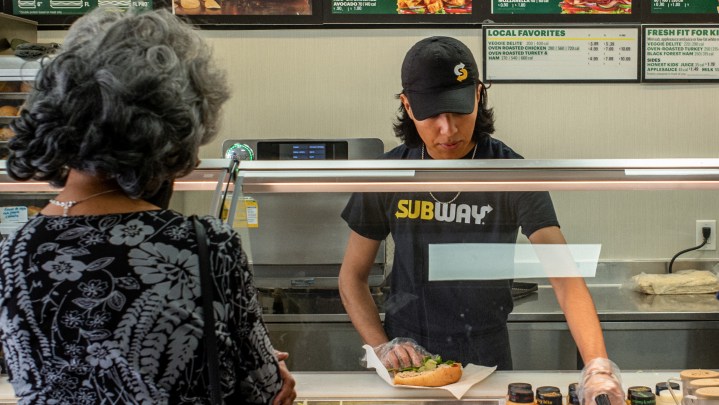
With salaries rising, how much do minimum wage increases matter?
With salaries rising, how much do minimum wage increases matter?

On New Year’s Day, 23 states raised their minimum wage, either by legislation, a voter referendum or an automatic cost-of-living mandate. Those increases range from just 23 cents an hour in Michigan to an extra $1.50 in Nebraska.
The Economic Policy Institute estimates that more than 8 million workers got a pay bump. That’s certainly welcome during these times of elevated inflation.
Thing is, wages have been going up in this tight labor market — around 5% over the past year. So how much do hikes in the minimum wage matter?
Lately, low-wage workers in sectors like fast food and hospitality have been able to insist on much more than their local minimum wage.
“These workers have seen their wages increase at a higher pace actually than workers at the higher end of the income spectrum,” said Molly Kinder, a fellow at the Brookings Institution.
But this year, many economists expect the job market to weaken. “It’s entirely possible that workers will not have the same leverage to command pay increases as they did in 2022,” she said.
Raising the minimum wage ensures that wage gains aren’t lost during an economic downturn, Kinder added.
Even in a tight labor market, “there’s always going to be some group of workers that are making that minimum wage,” said David Cooper with the Economic Policy Institute. “Maybe those folks have limited job options because of a disability or a health condition. Maybe they have transportation restrictions. Maybe they have child care restrictions.”
Raising the wage floor protects workers who don’t have as much weight to throw around, Cooper said.
The catch, according to Michael Strain with the American Enterprise Institute, is that boosting the minimum can mean fewer low-wage and entry-level job openings.
“I think now would be a bad time to increase the costs to employers of hiring those workers,” he said.
The federal minimum wage, by the way, is not increasing. It stands at $7.25 an hour — where it’s been since 2009.
There’s a lot happening in the world. Through it all, Marketplace is here for you.
You rely on Marketplace to break down the world’s events and tell you how it affects you in a fact-based, approachable way. We rely on your financial support to keep making that possible.
Your donation today powers the independent journalism that you rely on. For just $5/month, you can help sustain Marketplace so we can keep reporting on the things that matter to you.











